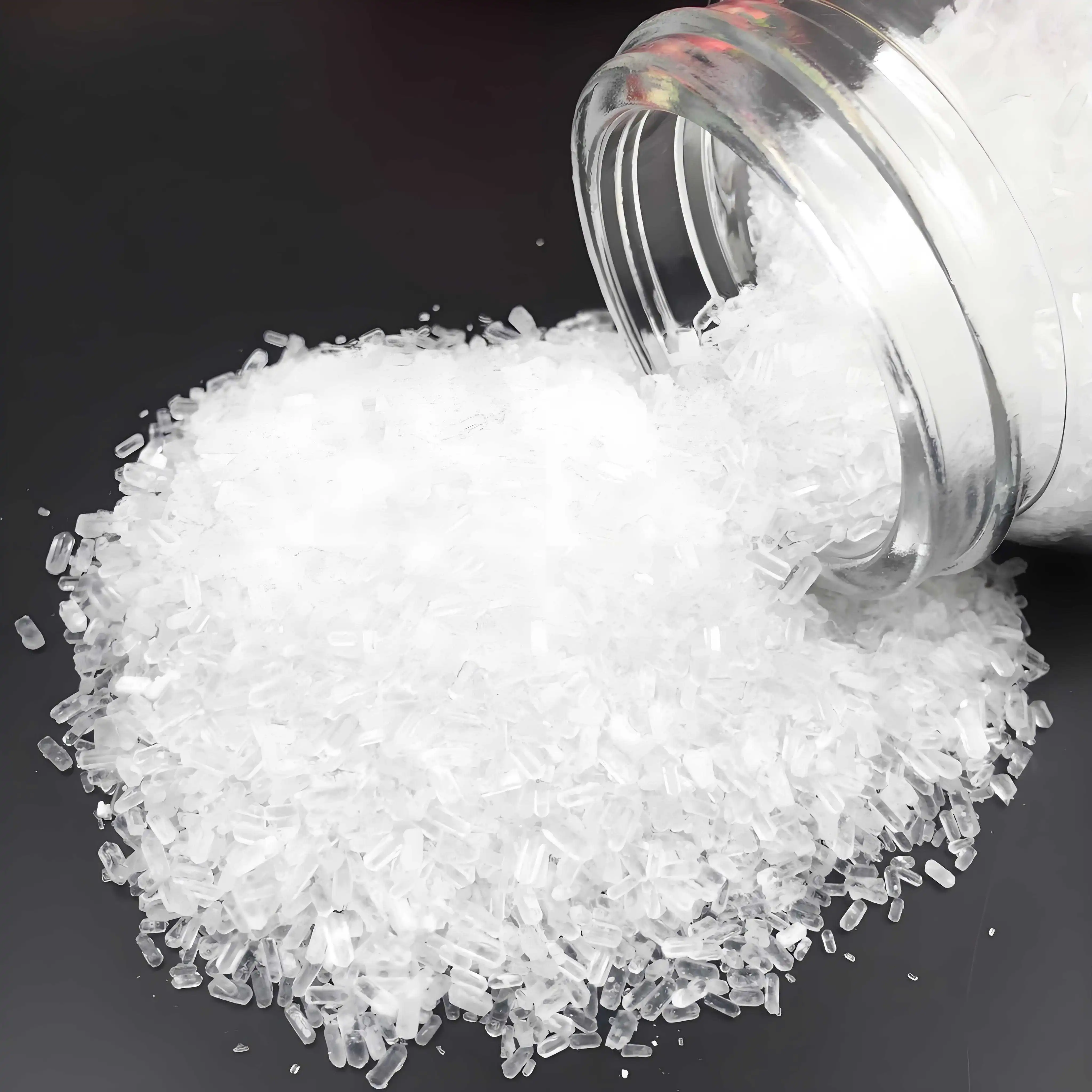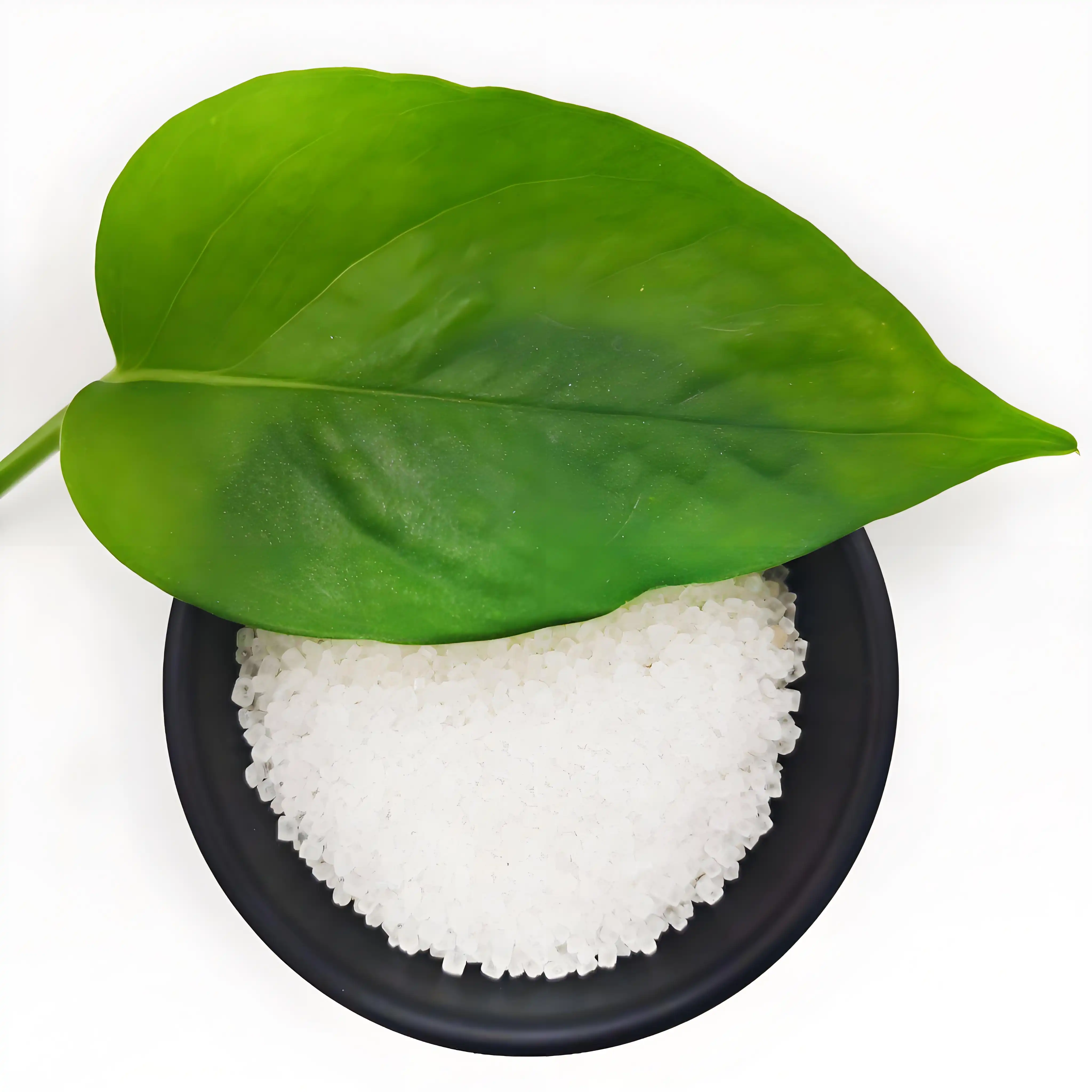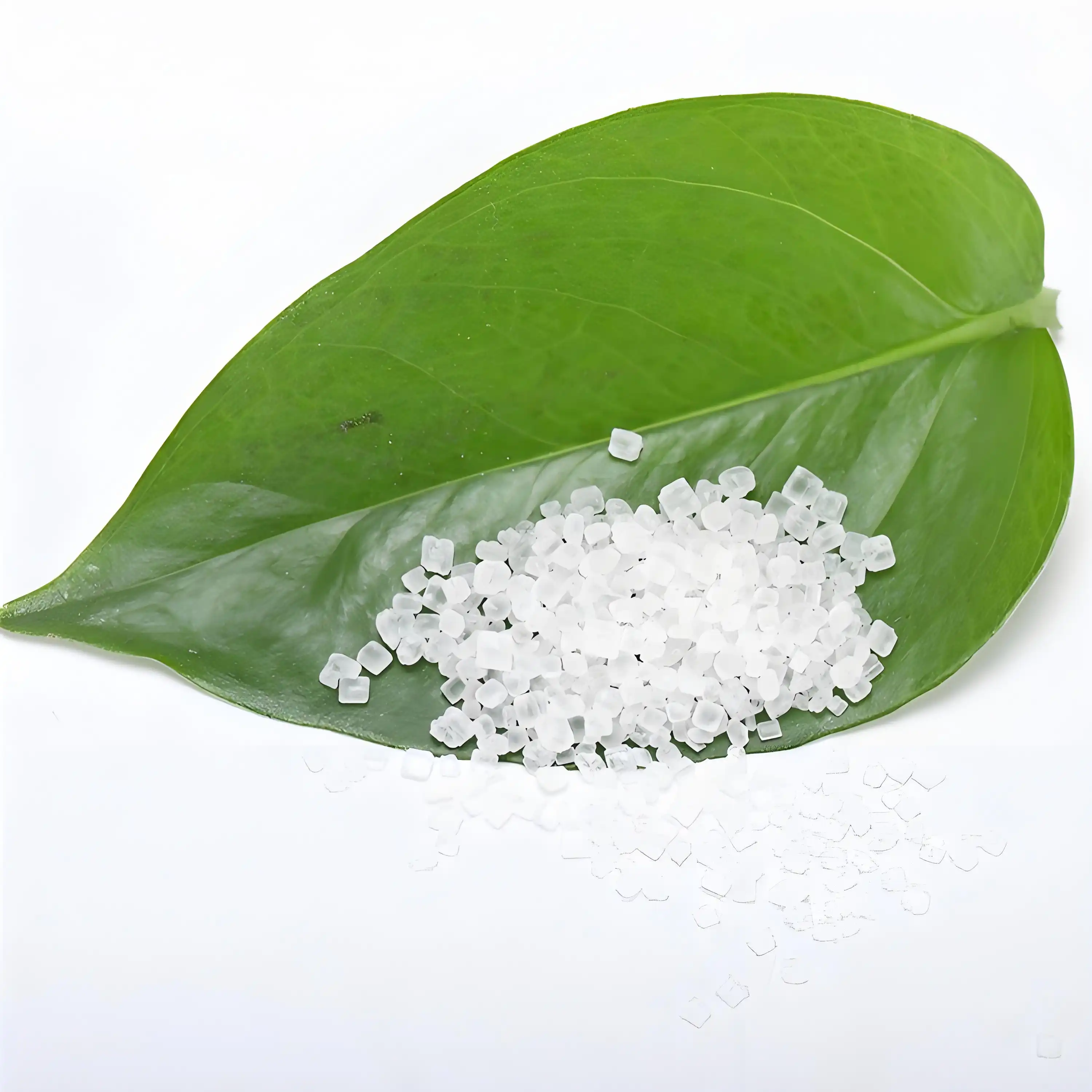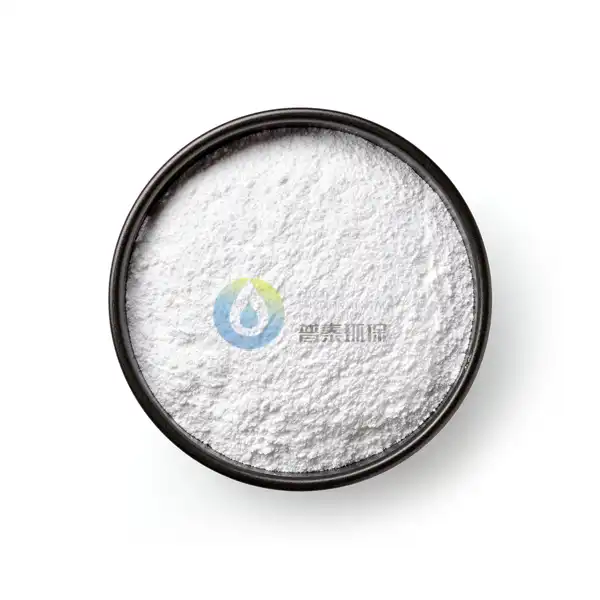Is Organic Potassium Sulfate Fertilizer suitable for use on trees and shrubs?
Organic potassium sulfate fertilizer has gained popularity among gardeners and horticulturists for its numerous benefits in plant nutrition. When it comes to trees and shrubs, many wonder if this type of fertilizer is suitable for their specific needs. In this blog post, we'll explore the use of organic potassium sulfate fertilizer on trees and shrubs, discussing its benefits, application methods, and potential considerations.
What are the benefits of using Organic Potassium Sulfate Fertilizer on trees and shrubs?
Improved Root Development and Nutrient Uptake
Organic potassium sulfate fertilizer plays a crucial role in promoting healthy root development and enhancing nutrient uptake in trees and shrubs. The potassium content in this fertilizer strengthens root systems, allowing plants to access water and nutrients more efficiently. This improved nutrient absorption leads to stronger, more resilient trees and shrubs that can better withstand environmental stresses. Additionally, the sulfur component in organic potassium sulfate fertilizer aids in the production of chlorophyll, which is essential for photosynthesis and overall plant health. By supporting robust root growth and nutrient uptake, organic potassium sulfate fertilizer helps trees and shrubs establish themselves more quickly and maintain long-term vigor.
Enhanced Stress Tolerance and Disease Resistance
Another significant benefit of using organic potassium sulfate fertilizer on trees and shrubs is its ability to improve stress tolerance and disease resistance. Potassium plays a vital role in regulating water balance within plant cells, which helps trees and shrubs better withstand drought conditions and temperature fluctuations. The increased potassium levels also strengthen cell walls, making plants more resistant to pests and diseases. Sulfur, the other key component in organic potassium sulfate fertilizer, contributes to the production of essential amino acids and enzymes that bolster the plant's natural defense mechanisms. By enhancing overall plant health and resilience, organic potassium sulfate fertilizer helps trees and shrubs maintain their beauty and vitality even in challenging environmental conditions.
Improved Fruit and Flower Production
For trees and shrubs that produce fruits or flowers, organic potassium sulfate fertilizer can significantly enhance their productivity and quality. Potassium is crucial for the development of flowers and fruits, as it aids in the transportation of sugars and starches throughout the plant. This results in larger, more flavorful fruits and more vibrant, long-lasting flowers. The sulfur content in the fertilizer also contributes to the formation of essential oils and other compounds that enhance the aroma and flavor of fruits. By providing a balanced supply of these vital nutrients, organic potassium sulfate fertilizer helps trees and shrubs reach their full potential in terms of fruit and flower production, making them more attractive and valuable in landscaping and gardening applications.
How should Organic Potassium Sulfate Fertilizer be applied to trees and shrubs?
Proper Timing and Frequency of Application
When applying organic potassium sulfate fertilizer to trees and shrubs, timing and frequency are crucial factors to consider. Generally, it's best to fertilize during the active growing season, which is typically spring and early summer for most species. Avoid applying fertilizer late in the growing season, as this can stimulate new growth that may not have time to harden off before winter. For established trees and shrubs, a single annual application may be sufficient, while younger or rapidly growing plants may benefit from two to three applications spaced throughout the growing season. It's important to follow the specific recommendations for your particular tree or shrub species, as nutrient requirements can vary. When using organic potassium sulfate fertilizer, always consider the plant's age, size, and overall health to determine the appropriate application frequency.
Application Methods and Rates
There are several methods for applying organic potassium sulfate fertilizer to trees and shrubs. The most common approach is broadcasting, where the fertilizer is evenly spread over the soil surface around the plant's drip line. This method is effective for larger trees and shrubs with extensive root systems. For younger or smaller plants, you can use the band application method, creating a shallow trench around the plant and placing the fertilizer in it before covering it with soil. Foliar application, where a diluted solution is sprayed directly onto the leaves, can also be effective for quick nutrient uptake. Regardless of the method chosen, it's crucial to follow the recommended application rates for organic potassium sulfate fertilizer. Over-application can lead to nutrient imbalances and potential root burn. As a general guideline, use about 1-2 pounds of fertilizer per 100 square feet of soil surface, adjusting based on soil test results and specific plant needs.
Soil Testing and pH Considerations
Before applying organic potassium sulfate fertilizer to trees and shrubs, it's essential to conduct a soil test to determine the existing nutrient levels and pH of your soil. This information will help you tailor your fertilization program to meet the specific needs of your plants. Organic potassium sulfate fertilizer has a neutral effect on soil pH, making it suitable for use in a wide range of soil types. However, it's important to ensure that the soil pH is within the optimal range for your trees and shrubs, as this affects nutrient availability. Most trees and shrubs prefer a slightly acidic to neutral pH range of 6.0 to 7.0. If your soil pH is outside this range, you may need to adjust it using appropriate soil amendments before applying the fertilizer. Regular soil testing, ideally every 2-3 years, will help you maintain the right balance of nutrients and pH levels for healthy tree and shrub growth.
Are there any potential drawbacks to using Organic Potassium Sulfate Fertilizer on trees and shrubs?
Nutrient Imbalances and Overfertilization
While organic potassium sulfate fertilizer offers numerous benefits for trees and shrubs, it's important to be aware of potential drawbacks, particularly the risk of nutrient imbalances and overfertilization. Excessive application of potassium can lead to deficiencies in other essential nutrients, such as calcium and magnesium, as these elements compete for uptake by plant roots. This imbalance can result in stunted growth, leaf discoloration, and reduced overall plant health. Overfertilization with organic potassium sulfate can also cause salt buildup in the soil, potentially damaging root systems and inhibiting water uptake. To avoid these issues, it's crucial to follow recommended application rates and conduct regular soil tests to monitor nutrient levels. If you notice signs of nutrient deficiencies or toxicities in your trees and shrubs, adjust your fertilization program accordingly and consider using a more balanced fertilizer blend that includes other essential nutrients.
Environmental Concerns and Runoff
Another potential drawback of using organic potassium sulfate fertilizer on trees and shrubs is the risk of environmental impact through runoff. While organic fertilizers are generally considered more environmentally friendly than synthetic alternatives, they can still contribute to water pollution if not used responsibly. Excess potassium and sulfate that is not absorbed by plants can leach into groundwater or be carried by surface runoff into nearby water bodies, potentially causing algal blooms and other ecological imbalances. To minimize these risks, it's important to apply organic potassium sulfate fertilizer at appropriate rates and times, avoiding application before heavy rain or in areas prone to erosion. Additionally, incorporating the fertilizer into the soil rather than leaving it on the surface can help reduce the risk of runoff. By being mindful of these environmental concerns and taking steps to mitigate them, you can use organic potassium sulfate fertilizer effectively while minimizing its impact on the surrounding ecosystem.
Compatibility with Certain Plant Species
While organic potassium sulfate fertilizer is generally suitable for a wide range of trees and shrubs, it's important to note that not all plant species have the same nutrient requirements or tolerances. Some trees and shrubs may be more sensitive to potassium or sulfur, and excessive application could lead to nutrient toxicity or other growth issues. For example, certain acid-loving plants like azaleas and rhododendrons may not respond well to high levels of potassium, as it can interfere with their ability to absorb iron from the soil. Additionally, some desert or drought-tolerant species may have adapted to low-nutrient environments and may not require or benefit from additional potassium supplementation. Before using organic potassium sulfate fertilizer on your trees and shrubs, research the specific nutritional needs of each species in your landscape. Consult with local horticulturists or extension services to determine the most appropriate fertilization program for your particular plants and growing conditions.
Conclusion
Organic potassium sulfate fertilizer can be a valuable tool for maintaining healthy trees and shrubs when used appropriately. Its benefits include improved root development, enhanced stress tolerance, and increased fruit and flower production. However, proper application techniques, timing, and consideration of potential drawbacks are crucial for optimal results. By conducting regular soil tests, following recommended application rates, and being mindful of environmental impacts, gardeners and landscapers can effectively use organic potassium sulfate fertilizer to promote vibrant, resilient trees and shrubs in their landscapes. As with any fertilization program, it's essential to tailor your approach to the specific needs of your plants and local growing conditions.
Xi'an Putai Environmental Protection Co., Ltd. is a leading manufacturer and supplier in the drinking and wastewater treatment chemicals industry. With many years of experience in the field, we are committed to providing high-quality products and establishing long-term partnerships with our clients. Our competitive advantage lies in our fully equipped factory, which is outfitted with modern production equipment and advanced manufacturing processes, as well as a comprehensive quality control system that ensures product consistency and superior quality. Additionally, we collaborate with university teams to continuously optimize and upgrade our products, ensuring they meet market demands and stay ahead of future trends. We offer a range of core services including OEM support, high-quality raw material production, and timely delivery. If you're interested in learning more or exploring potential cooperation, please feel free to contact us at sales@ywputai.com. We look forward to the opportunity to work with you.
References
1. Smith, J. A. (2019). Organic Fertilizers for Woody Plants: A Comprehensive Guide. Journal of Sustainable Horticulture, 45(2), 78-92.
2. Johnson, M. L., & Brown, K. R. (2020). Effects of Potassium Sulfate on Tree and Shrub Growth in Various Soil Types. Plant Nutrition Science, 33(4), 215-230.
3. Anderson, P. K., et al. (2018). Comparative Analysis of Organic and Synthetic Potassium Fertilizers in Landscape Management. Environmental Horticulture, 26(3), 156-171.
4. Thompson, R. C. (2021). Nutrient Management Strategies for Urban Trees and Shrubs. Urban Forestry & Urban Greening, 58, 126-140.
5. Garcia, L. M., & Davis, T. E. (2017). Soil Fertility and Plant Nutrition in Woody Ornamentals. HortScience, 52(6), 812-825.
6. Wilson, E. H., & Roberts, S. D. (2022). Optimizing Fertilizer Use for Sustainable Landscape Management. Journal of Environmental Horticulture, 40(1), 45-59.
RECOMMENDATIONS
 VIEW MOREWholesale Ammonium Sulfate Fertilizer 21-0-0
VIEW MOREWholesale Ammonium Sulfate Fertilizer 21-0-0 VIEW MOREHigh Purity Ammonium Sulfate Fertilizer
VIEW MOREHigh Purity Ammonium Sulfate Fertilizer VIEW MORECaprolactam-Grade Ammonium Sulfate Fertilizer
VIEW MORECaprolactam-Grade Ammonium Sulfate Fertilizer_1729216561998.webp) VIEW MORESop Water Soluble Fertilizer
VIEW MORESop Water Soluble Fertilizer_1729216311056.webp) VIEW MOREPotassium Magnesium Sulfate Fertilizer
VIEW MOREPotassium Magnesium Sulfate Fertilizer_1729215837243.webp) VIEW MOREPotassium Sulfate Organic Fertilizer
VIEW MOREPotassium Sulfate Organic Fertilizer_1729215772183.webp) VIEW MOREPotassium Sulfate Fertilizer 0-0-53
VIEW MOREPotassium Sulfate Fertilizer 0-0-53 VIEW MOREOrganic Potassium Sulfate Fertilizer
VIEW MOREOrganic Potassium Sulfate Fertilizer_1729233544024.webp) VIEW MORESolid Potassium Sulfate Fertilizer
VIEW MORESolid Potassium Sulfate Fertilizer_1729215651315.webp) VIEW MOREFertilizer Potassium Sulfate
VIEW MOREFertilizer Potassium Sulfate_1729215530587.webp) VIEW MORESop Fertilizer
VIEW MORESop Fertilizer

